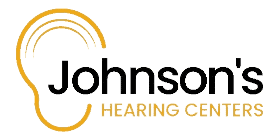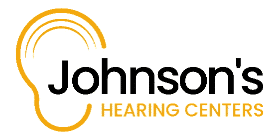If you’ve been experiencing signs of hearing loss or simply want to check on your hearing health, scheduling a hearing exam is important for maintaining your well-being. A hearing health exam is a straightforward process that gives valuable insight into your ear health, helping to identify any changes or issues early on. Knowing what to expect can make the experience more comfortable and stress-free.
A Comfortable and Welcoming Start
When you arrive for your hearing exam, the first thing you’ll notice is a welcoming and comfortable environment. Your hearing care provider will start by asking about your medical history and lifestyle. These questions help in understanding your overall health and any potential risk factors for hearing loss, such as noise exposure, medications, or family history. This initial conversation helps your provider tailor the hearing exam to your unique needs, ensuring that every aspect of your hearing health is considered.
Physical Examination of the Ears
After gathering information, your hearing specialist will conduct a physical examination of your ears. This part of the hearing health exam involves using an otoscope, a tool that allows the provider to look inside your ear canal and check for any visible issues. Common problems like earwax buildup, infections, or eardrum damage can sometimes be identified during this step. The physical exam is quick and painless, but it’s essential in spotting conditions that could be causing hearing loss.
Hearing Tests in a Soundproof Room
Next, you’ll be escorted to a soundproof room for hearing tests. These tests assess how well you hear different sounds and speech at various volumes and pitches. One of the most common tests is pure-tone audiometry, where you will wear headphones and listen to sounds that vary in frequency. You’ll be asked to indicate whenever you hear a sound by pressing a button.
This test helps determine the quietest sound you can hear at each pitch, which gives your provider important information about the level of hearing loss you may have. It’s important to stay focused during this test, as the results will guide the next steps in your hearing care plan.
Speech Recognition Test
This test measures your ability to understand words in a quiet environment, sometimes even with background noise. You will listen to words through headphones and repeat them to the provider. The speech test is valuable because hearing loss often affects the ability to understand speech clearly, especially in noisy settings. If you struggle to understand words during this test, it could indicate that you may benefit from hearing aids or other hearing devices.
Reviewing Your Hearing Test Results
Once the hearing tests are complete, your provider will review the results with you. Here, you will see your audiogram, a visual chart that shows the softest sounds you can hear at different pitches. The results will indicate whether you have normal hearing or some degree of hearing loss, and they can help identify the type and severity of the issue. Your hearing care provider will explain the audiogram in detail, ensuring you understand what the results mean for your hearing health.
Developing a Personalized Hearing Care Plan
If the tests show signs of hearing loss, your provider will discuss potential solutions. These could include hearing aids, custom ear protection, or medical treatment if necessary. Whether you need to consider hearing aids or simply plan regular check-ups, your provider will guide you through the best options to maintain your hearing health. Taking this proactive approach ensures that any hearing loss is managed effectively, allowing you to stay connected to the world around you.
Hearing Health Maintenance and Follow-Up
Regular hearing exams are an important part of maintaining your hearing health, especially as you age or if you are regularly exposed to loud environments. Your provider may recommend follow-up visits to monitor your hearing and ensure that any devices you use, like hearing aids, are functioning properly. Staying on top of your hearing health can help prevent future issues and keep you hearing clearly for years to come.

